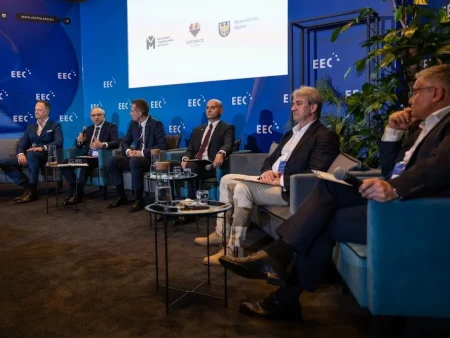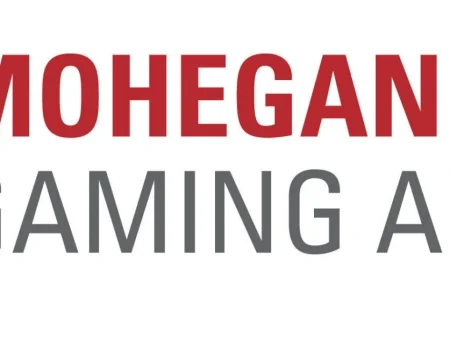Tribal nations in the United States have dodged a bullet so far when it comes to attacks on their sovereignty and feel buoyed by recent court rulings. But with state governments wanting to take more control over Indian Country and ongoing fears about the courts, their concerns aren’t going away.
Like they did at the Indian Gaming Association’s (IGA) annual conference in March, tribal leaders discussed those fears at its mid-year conference and expo last week at the Foxwoods Resort and Casino in Connecticut.
It comes with tribal gaming in rude health. The National Indian Gaming Commission’s annual report shows revenues in 2022 rose 4.9% to $40.9bn (£33.0bn/€38.2bn). That $1.9bn year-on-year gain is the highest ever recorded.
Despite that success, tribal leaders remain on edge as politicians and some commercial gaming interests look to cut into that share through the courts or state governments.
One of their biggest worries was abated when in June the US Supreme Court, in a majority opinion, upheld the validity of the Indian Child Welfare Act (ICWA), enacted by Congress in 1978.
Haaland vs Brackeen victory
While the high court was considering whether Native American families get preference in fostering or adopting children in the case of Haaland vs Brackeen, it cut into the heart of tribal sovereignty.
In that case, a non-native Texas couple cited arguments that have been used in restricting tribal gaming rights enshrined in the 1988 Indian Gaming Regulatory Act (IGRA). Tribes feared the case, if lost, would be used to take away gaming rights.
“It’s a ruling that will give people pause about running up to the Supreme Court to water down tribal sovereignty,” says Victor Rocha, conference chair of the IGA.
“It’s that aspect that does create a little bit of doubt for a lot of these organisations coming after tribes.”
IGA chairman Ernie Stevens says that tribes aren’t trying to create any favouritism. Instead, it’s a case of recognising tribes were sovereign governments long before there was a US Constitution.
Seminoles celebrate Sunshine State success
Tribes also won another victory over the summer when a federal appeals court reinstated a compact between the Seminole Tribe and the state of Florida. That agreement centres on statewide mobile sports wagering, effectively creating a tribal monopoly. A commercial casino and poker room is required for gambling expansion.
On 11 September, the full US Court of Appeals for the District of Columbia opted against rehearing the case. Sports betting could now be implemented this month unless the case is appealed to the Supreme Court. The case is expected to have ripple effects on other tribes and potential legal challenges in the future.
“It was a big shot to all of us, especially some like me who are afraid of eclipses,” Rocha, who pointed out that sports betting and online gaming is important for a tribe’s future, says.
“It changes a lot of things for tribes to be thinking about sports betting and compact negotiations. Everything of value that the tribes have is trying to be taken away or negotiated down. There’s a lot of exuberance over this case and I’m seeing a lot of reports that tribes can just start up sports betting. It brings a lot of optimism.”
The significance of the ruling “is overwhelming”, according to Arizona-based tribal gaming attorney Scott Crowell. It dispels the notion IGRA can be used to preclude tribes from joining in the newest and fastest growing sector of the gambling industry in sports betting, an argument that held sway in the district court.
Boxed in
“That somehow every aspect of the gaming activity needs to occur on Indian lands or if not tribes couldn’t participate?” Crowell says. “The circuit court put an end to that nonsense.
“We’ve had off-track betting compacts with tribes in dozens of states since the earliest years of the Indian Gaming Regulatory Act, and the major aspect of that gaming – the event that determines the outcome of the game – occurs off Indian land.
“That has been dispelled and that’s going to be critical as tribes in each state look at what their opportunities might be with mobile wagering.”
The issue will be determined state by state. At least there’s a model to get it done where a state and tribe are willing to enter into an agreement under IGRA, Crowell adds.
“It felt like the industry was trying to put us in a box,” Rocha says. “They were looking at IGRA as a box to keep the tribes in and this feels like one in which the box has been opened, but it has to be on a state by state case.”
Commercial powering tribal?
Crowell argues the state by state model had been pushed by sports betting operators. Commercial competitors spent hundreds of millions of dollars on a failed referendum in 2022 to enact sports wagering in California. With their participation, they would have the leverage to cut deals where they would keep the bulk of the revenues.
“They like the model because the provision in the Indian Gaming Regulatory Act requires that the tribes be the primary beneficiary and sole proprietary interest and at least 60% of the revenue flows to the tribes,” Crowell explains. He hopes for more supply deals where commercial technology powers tribal brands.
“Entities that have the technology and wherewithal to get a site up and running and provide that service to the tribes, recognising the maximum revenue they can extrapolate is 40%, would be a dramatic change in terms of the economic opportunities that are out there for tribes.”
The exclusivity factor
The key to the economics of the Seminole deal with the state of Florida is exclusivity, he continues. This contrasts a state like Arizona where 10 tribal licences and 10 additional ones brought in DraftKings, FanDuel and BetMGM and even sports franchises to have a licence.
“Even though the tribes have half the licences, they might have 5% or 10% of the revenue and that was because of the legal uncertainty prior to this decision coming down,” Crowell says.
The ruling makes clear there’s a model if there’s a willing tribe and state. But it doesn’t answer the question of states authorising statewide mobile sports betting and excluding tribes.
Crowell points out Oregon took that tack. It argued only the lottery could offer statewide mobile gaming. It also cited the District Court decision as grounds to tell tribes they couldn’t have a compact amendment allowing for statewide mobile betting.
The lottery entered into an agreement with DraftKings, paying 49% of net revenue to the operator. In addition, if the state enters into a compact with a tribe that allows for mobile sports betting, DraftKings’ share goes to 85%. If there are four compacts of the nine tribes in Oregon, it goes up to 95%.
“It’s crazy they are locking in this position that says ‘we’re going to create an Oregon state lottery and lock the tribes out’,” Crowell says. “The Oregon Lottery might wind up dreading that they entered into that agreement.”
If a state is unwilling to enter into an agreement similar to the Seminoles’ deal, but authorises residents to place bets from anywhere within state borders, they face a challenge. Under IGRA they should have an obligation to negotiate in good faith for a compact amendment to allow the tribes to offer the same game, he adds.
Could the Florida ruling’s ripples reach Oklahoma?
Jason Giles, an attorney and executive director of the IGA, wonders how this will play in Oklahoma between tribal gaming and the governor, Kevin Stitt. The governor is not interested in enacting sports betting but may permit commercial operators to come to the state.
“Although Governor Stitt is very hostile, the legislature still appears very friendly and was poised to authorise sports wagering for the Oklahoma tribes,” Giles explains. “[But they] were trying to do it without consulting with the […] tribes, which is what led to the failure of the legislation.
“This Seminole decision now gives the Oklahoma tribes and Oklahoma Legislature a model that I think works. Like many states such as California, Minnesota, Wisconsin and Washington state, they have been able to preserve tribal exclusivity to casino-style games.
“For those who have the tribal exclusivity, the Seminole model would work well in terms of establishing the legal framework to go forward.”
Even if mobile wagering is allowed for tribes, there are economic hurdles to overcome, Crowell points out. He gives an example of North Carolina, where statewide mobile sports betting was authorised. Tribes were given an option to either be geofenced on the reservation or to compete against commercial operators for one of the 12 licences.
Legal threat to tribal sovereignty lingers
Giles hopes the recent court rulings deter continued attacks on tribal sovereignty. He cites a case in Washington state where tribes won a victory in federal court in February when a judge dismissed a lawsuit by card room operator Maverick Gaming attempting to strike down a law giving tribes exclusive rights to sports wagering.
The case has been appealed to the US Court of Appeals for the Ninth Circuit. Giles expects it to make its way to the Supreme Court where anything can happen. It’s a court that hasn’t been friendly to tribes in the past, has changed previous rulings and can ultimately jeopardise sovereignty.
“Commercial guys are coming in pretty aggressively now and challenging tribal exclusivity, which we take as a challenge to sovereignty,” Giles says. “If it was just commercial gaming doing this we would battle it out with them, but it’s a movement across the country.
“We are a government that pre-existed the United States and we’re going to have to keep arguing that. As good as the ICWA decision was, we didn’t get the language [from the Supreme Court] that tribes pre-existed the Union. When states in the enabling acts entered the Union they didn’t want anything to do with Indian tribes and left that to the federal government. The Maverick case will hopefully die on the vine.”
Preparing for future challenges
IGA and the National Congress of American Indians have reactivated a dormant task force to protect tribal sovereignty and held its first meeting over the summer.
The Department of Interior wants to streamline regulations regarding tribal lands in trust to reclaim stolen lands. Those dealing with compacts that have brought out commercial gaming operators falsely claim tribes will buy land in the middle of the city and open a casino, Giles adds.
“Our interests have aligned more and more with commercial gaming and they’ve been more receptive than ever, largely because they started doing business in Indian Country,” he says.
“There are plenty of companies out there, whether it’s Harrah’s running a couple of casinos, but now you have FanDuel and DraftKings running sportsbooks for tribes saying there shouldn’t be tribal sovereignty.”
Sovereignty stretches beyond gaming
It’s not just sports betting and gaming that are at risk when it comes to sovereignty, Rocha adds. The adoption case struck an emotional chord with Native Americans that goes back to a past of forced boarding schools and taking away children.
“In Indian Country people were weeping in victory saying we can preserve our future,” Rocha explains. “Here was a law that preserved the culture by saving children and was under threat.
“It’s important we aren’t complacent and keep fighting. We need to keep an eye on the ball and make sure the tribes are not shanghaied. That could still happen.”
Giles’ fears will never go away because of what’s happened in recent years with the state of American politics.
“You never know the direction of this country,” he says. “If you get more people in [Congress] that don’t like tribes and feel they have an unfair advantage, think of the damage they can do.
“We’re in a place where a small minority can point the direction for a lot of folks and people go along with it because they don’t want conflict. Tribes have faced this over and over.”
Original Article















